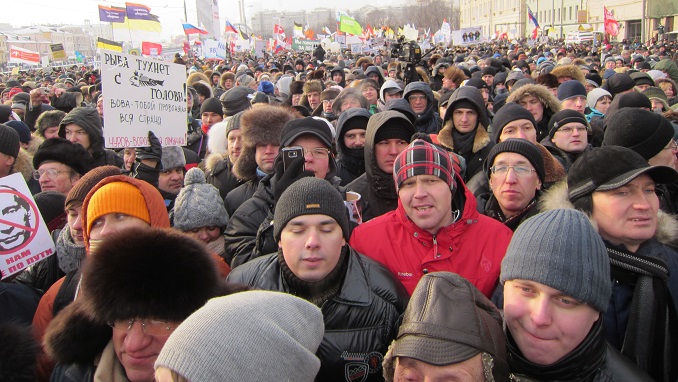A harsh government crackdown against a Moscow rally over the weekend, which resulted in over 1,500 people detained, has drawn the world’s attention to Russia’s economic problems, along with the authoritarian style of rule of President Vladimir Putin, experts told Vedomosti.
According to economist Vladislav Inozemtsev, the founder and director of the Centre for Research on Post-Industrial Societies (CIPO), the decline in living standard and the ongoing economic crisis are the main drivers of discontent in Russia.
“Despite the relatively high oil prices and the record surplus of the federal budget in 2018, the population’s real income continues to decline and a reversal of the trend is not in sight. And although the opposition did not appear in Russia in the usual sense of the word, the financial hardships can lead to such social cataclysms that Moscow protests will look like an innocent stroll in a park by a small group of citizens. Therefore, instead of searching for new political technologies, the Kremlin should think about building new relations with society,” says Inozemtsev.
Even though the summer vacation season is at its peak, people are joining unauthorized demonstrations, political scientist Alexei Makarkin noted, adding that protest activities might increase as the September 8 Moscow City Council election draws closer. According to him, these activities can take various forms, from influencing people’s involvement in unauthorized demonstrations to the vote itself.
“People who don’t want to come near an unsanctioned rally and are not ready to take part in the opposition’s authorized activity may vote against the authorities when they face a ballot box,” he explained.
Inozemtsev stressed that Russian authorities will soon have to deal with protests outside Moscow, as economic conditions for the ordinary citizen continue to deteriorate.
“On the one hand, in order to ease the pressure at the political front, it would make sense to make concessions at the economic one. After all, large protest rallies are expected in the near future not only in Moscow; in early August in Novosibirsk, citizens intend to take to the streets due to another increase in charges for heating and hot water. In the capital of Siberia, charges increased from July 1 by 8.9% (while real income in the region has increased only by 1.4% over the year),” the analyst said.












